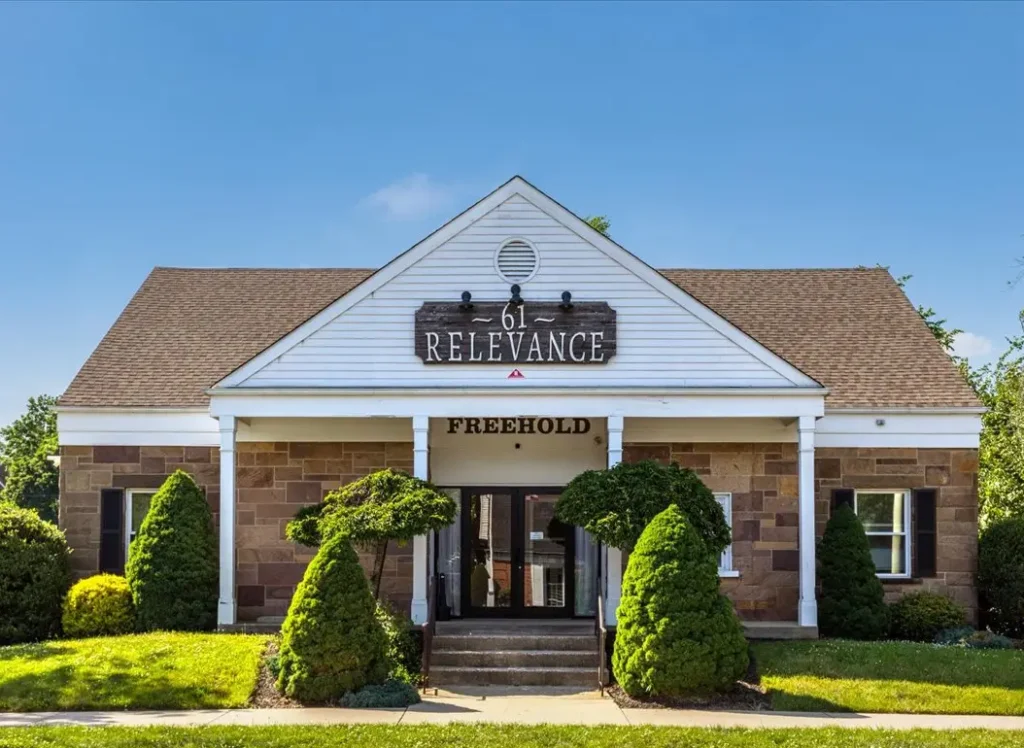Discover the help you need to overcome fentanyl addiction with our dedicated team in New Jersey.
Fentanyl is a synthetic opioid that is up to 100 times more potent than morphine and 50 times stronger than heroin. Initially developed for medical use in managing severe pain, particularly for cancer patients or those undergoing surgery, fentanyl has become one of the deadliest substances driving the ongoing opioid epidemic. Its potency makes it highly addictive, and even a small miscalculated dose can result in a deadly overdose.
The rise in fentanyl-related overdoses has devastated individuals, families, and communities across the country, including here in New Jersey. Illicitly manufactured fentanyl, often mixed into other substances without the user’s knowledge, has caused a surge in overdose fatalities. According to the Centers for Disease Control and Prevention (CDC), fentanyl was involved in nearly 70% of opioid-related deaths nationally in 2021.
At Relevance Recovery, we recognize the urgent need for specialized care to address this crisis. Our fentanyl rehab in Freehold, NJ provides a safe, evidence-based treatment program designed to help individuals break free from fentanyl dependency and reclaim their lives. With a combination of medical support, therapeutic care, and holistic interventions, we offer comprehensive solutions for overcoming addiction while rebuilding strength and hope.


Fentanyl addiction treatment is a structured program that addresses the physical, psychological, and emotional aspects of opioid dependency. Due to fentanyl’s extreme potency and the severity of its withdrawal symptoms, professional treatment is essential to ensure safety and long-term recovery.
At Relevance Recovery, our fentanyl rehab programs in Freehold, NJ include a range of services and therapies aimed at supporting clients through detox, healing, and relapse prevention. Our program emphasizes individualized care, meaning we craft a treatment plan tailored to each person’s unique needs, history, and goals.
Our fentanyl addiction treatment program blends medical care, behavioral therapy, and holistic approaches to provide comprehensive support:










We work with most major insurance carriers to help provide affordable, accessible treatment options to those who need it most. Our admissions coordinators can answer all of your questions. Call for a confidential assessment and insurance verification.



















When you choose our fentanyl rehab in Freehold, NJ, you can expect compassionate, expert care from a dedicated team of professionals who understand the unique challenges of fentanyl addiction. From the moment you enter our program, we prioritize your safety, comfort, and long-term success, guiding you through every stage of the recovery journey.
Your treatment begins with a medically supervised detox, where our clinical team provides around-the-clock monitoring and symptom management to ensure you withdraw safely. Because fentanyl is so potent, detox can be intense, but our staff is experienced in reducing discomfort and minimizing complications. This stage sets the groundwork for meaningful therapeutic work.
Following detox, clients transition into individualized therapy and counseling. We use evidence-based approaches such as Cognitive Behavioral Therapy (CBT) and Dialectical Behavior Therapy (DBT) to help you identify the root causes of substance use, reframe harmful thought patterns, and develop practical coping skills. Each client works with a primary therapist to set personal goals and measure progress along the way.
Recovery at Relevance Recovery also emphasizes peer support and community connection. Through group counseling sessions, clients share experiences, gain encouragement from others who understand their struggles, and build accountability for their recovery. These connections often become a powerful source of motivation and support long after treatment ends.
To promote overall wellness, our program integrates holistic and life-skills activities designed to heal the mind and body. Activities such as mindfulness exercises, stress management training, and nutritional guidance help clients restore balance and build healthier daily routines. We also focus on relapse prevention strategies, preparing clients to handle triggers and high-risk situations with confidence.
By addressing the physical, emotional, and social dimensions of addiction, our fentanyl rehab in Freehold, NJ, provides a comprehensive framework for lasting recovery. Clients leave our program with a stronger sense of stability, a supportive network, and the tools needed to maintain sobriety and rebuild their lives.
New Jersey has been heavily impacted by the opioid epidemic, with fentanyl driving a significant portion of overdose deaths. Local addiction statistics highlight the critical need for intervention and professional treatment programs at trusted fentanyl treatment centers in New Jersey, like Relevance Recovery.
Opioid and Fentanyl Overdose Statistics
Given the scope and urgency of fentanyl-related addiction, programs like our fentanyl detox in Freehold, NJ are essential for saving lives and helping families heal.


Understanding when fentanyl addiction treatment is necessary can help prevent further harm and guide individuals toward a life of recovery. Addiction to fentanyl often manifests through physical, psychological, and behavioral changes.
Signs of Fentanyl Addiction
If you or someone you care about is displaying these symptoms, immediate intervention may be needed.
Fentanyl withdrawal can be an intimidating and painful process, which is why medical detox is so critical. Symptoms often vary in severity based on the length of use, dosage, and the person’s overall health.
Common Withdrawal Symptoms
Timeline for Fentanyl Withdrawal
Our fentanyl detox in Freehold, NJ ensures clients remain safe and comfortable throughout detoxification. Medical interventions, hydration, and therapeutic support are provided to minimize discomfort and reduce cravings during withdrawal.


At Relevance Recovery, our fentanyl rehab programs in Freehold, NJ prioritize comprehensive care to support every aspect of recovery. A typical day might include:
Daily Activities
Our program is structured but flexible, giving clients the tools they need to sustain sobriety long after treatment ends.
Our expert admissions coordinators will create a custom plan for you.
Fentanyl rehab is a structured treatment program designed to help individuals safely detox from fentanyl, manage withdrawal symptoms, and learn the tools needed to maintain long-term sobriety. At programs like Relevance Recovery, clients receive a combination of medical care, therapy, and relapse prevention support.
You may need rehab if fentanyl use has become difficult to control, if you experience withdrawal symptoms when not using, or if substance use is negatively impacting your health, relationships, or responsibilities. Because fentanyl is so potent, even short-term use can quickly lead to dependence and overdose risk.
Detox is the first step in fentanyl rehab. Under medical supervision, clients safely withdraw from the drug while receiving medications and supportive care to minimize discomfort. The process can last anywhere from a few days to a week, depending on the severity of dependence and overall health.
Yes, many programs offer medication-assisted treatment (MAT), which may include buprenorphine or naltrexone. These medications help reduce cravings, stabilize mood, and prevent relapse when combined with therapy and counseling.
Therapies often include Cognitive Behavioral Therapy (CBT), Dialectical Behavior Therapy (DBT), group counseling, family therapy, trauma-informed care, and relapse prevention planning. Holistic approaches such as mindfulness and stress management may also be included to promote overall wellness.
The length of treatment varies depending on individual needs. Detox usually lasts a few days, but ongoing therapy and outpatient treatment can last weeks or months. Many clients benefit from step-down levels of care such as partial care, intensive outpatient programs (IOP), and outpatient therapy to support long-term recovery.
Most private insurance plans provide coverage for addiction treatment, including fentanyl rehab. At Relevance Recovery, our admissions team helps clients verify their benefits and minimize out-of-pocket costs to make treatment more accessible.
Recovery doesn’t end when treatment is complete. Many programs, including ours, offer aftercare planning, alumni support, and connections to community resources such as 12-step meetings or outpatient therapy. These services ensure clients have the support they need to maintain sobriety.
Beginning your journey to wellness is made simple with our comprehensive admissions process.
How to Get Started
We are committed to making treatment accessible and effective for everyone who steps through our doors.
Fentanyl addiction does not have to define your future—help is available, and recovery is possible. At Relevance Recovery, our fentanyl treatment centers in New Jersey offer expert care and compassionate support to guide you or your loved one through every step of recovery. With our fentanyl rehab in Freehold, NJ, you’ll gain the tools, resources, and confidence you need to reclaim your life.
Don’t wait—contact us today to learn more about our fentanyl rehab programs in Freehold, NJ, verify insurance coverage, and take the first step toward lasting freedom. The path to hope begins here.